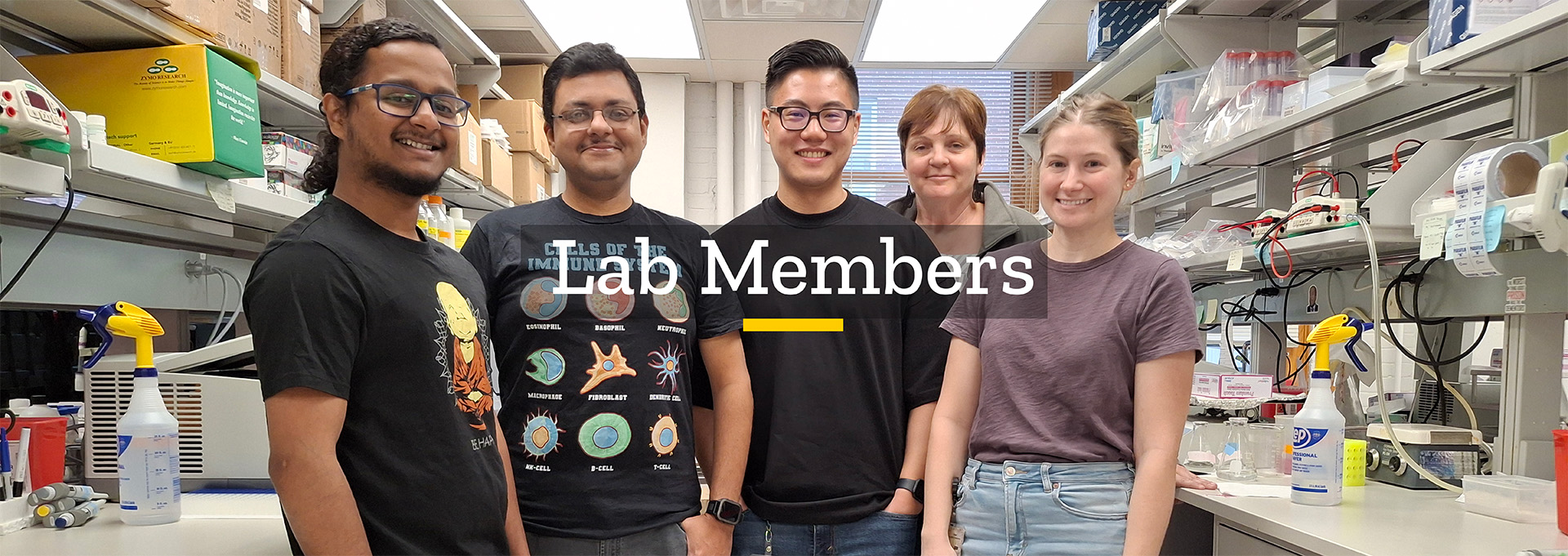Welcome to the Tanas Lab
Our lab studies the role of the Hippo pathway in sarcomas.
Sarcomas are difficult to treat cancers that arise in the bone and soft tissues (muscle, adipose tissue, peripheral nerve, blood vessels, connective tissue). Metastatic sarcoma has a poor prognosis, with a 5 year survival of approximately 15%. Additional therapeutic targets are needed for these cancers; our lab has focused on the Hippo pathway as a novel therapeutic target.
The Hippo pathway is composed of a series of serine/threonine kinases that negatively regulate TAZ and YAP. TAZ and YAP are closely related transcriptional co-activators and oncoproteins in many different cancers including sarcomas. We have previously shown that TAZ and YAP are activated in over 50% of sarcomas, making this pathway a central one for sarcomas.
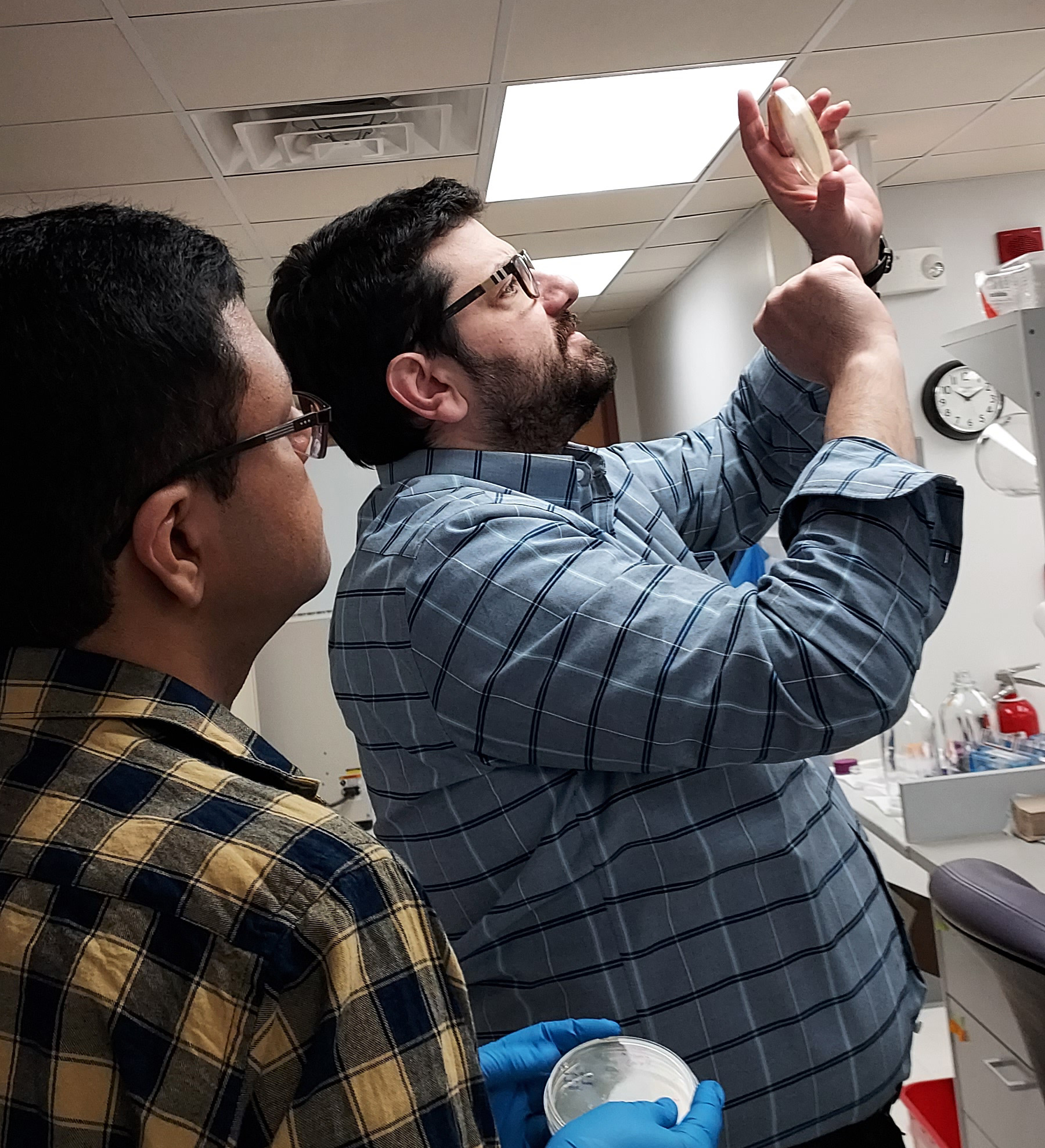
Memberships
Our current projects in the lab focus on:
- Mechanisms of oncogene activation
- Upstream signal transduction mechanisms
- Epigenetics
- Tumorigenesis and metastasis
- Identification of new therapeutic drugs
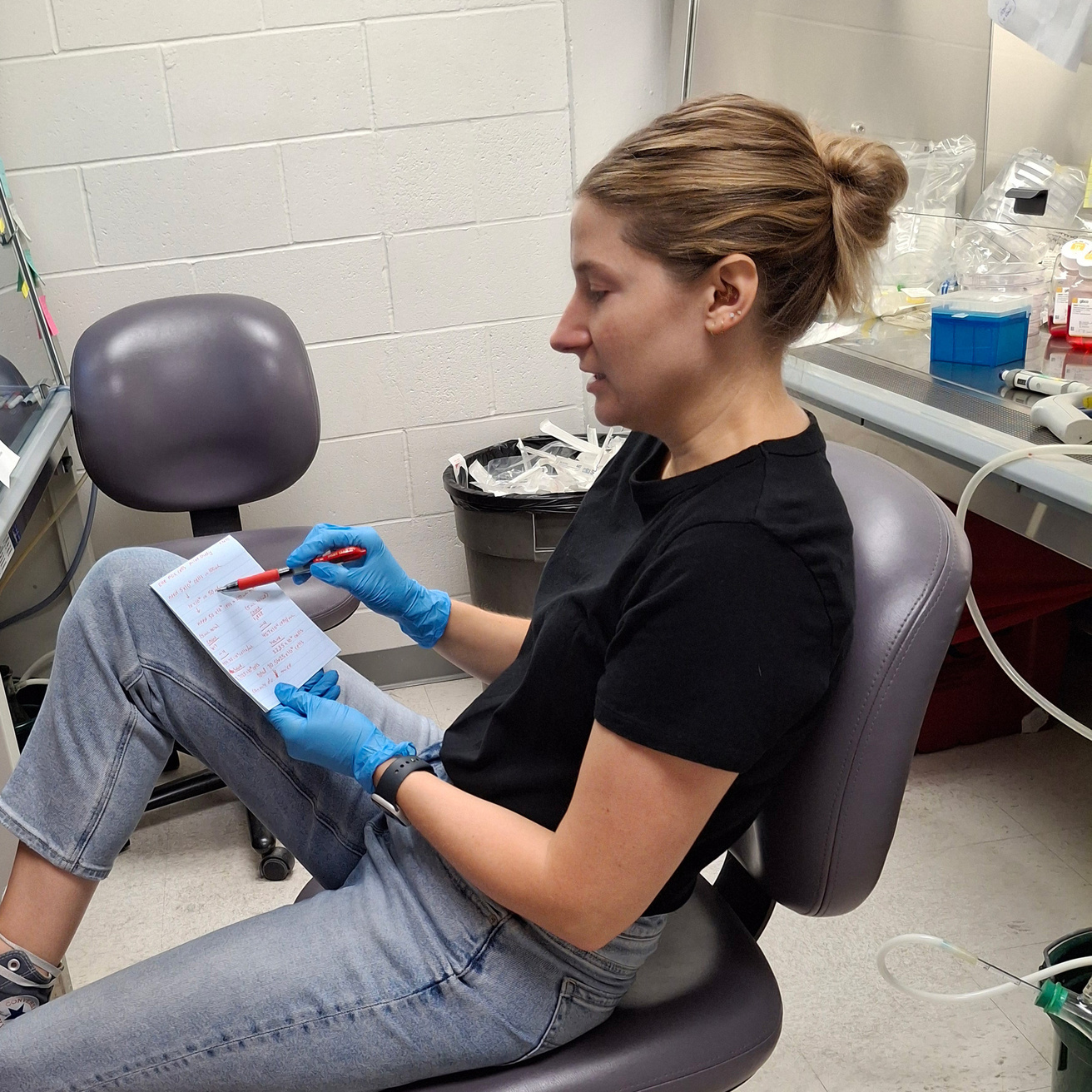
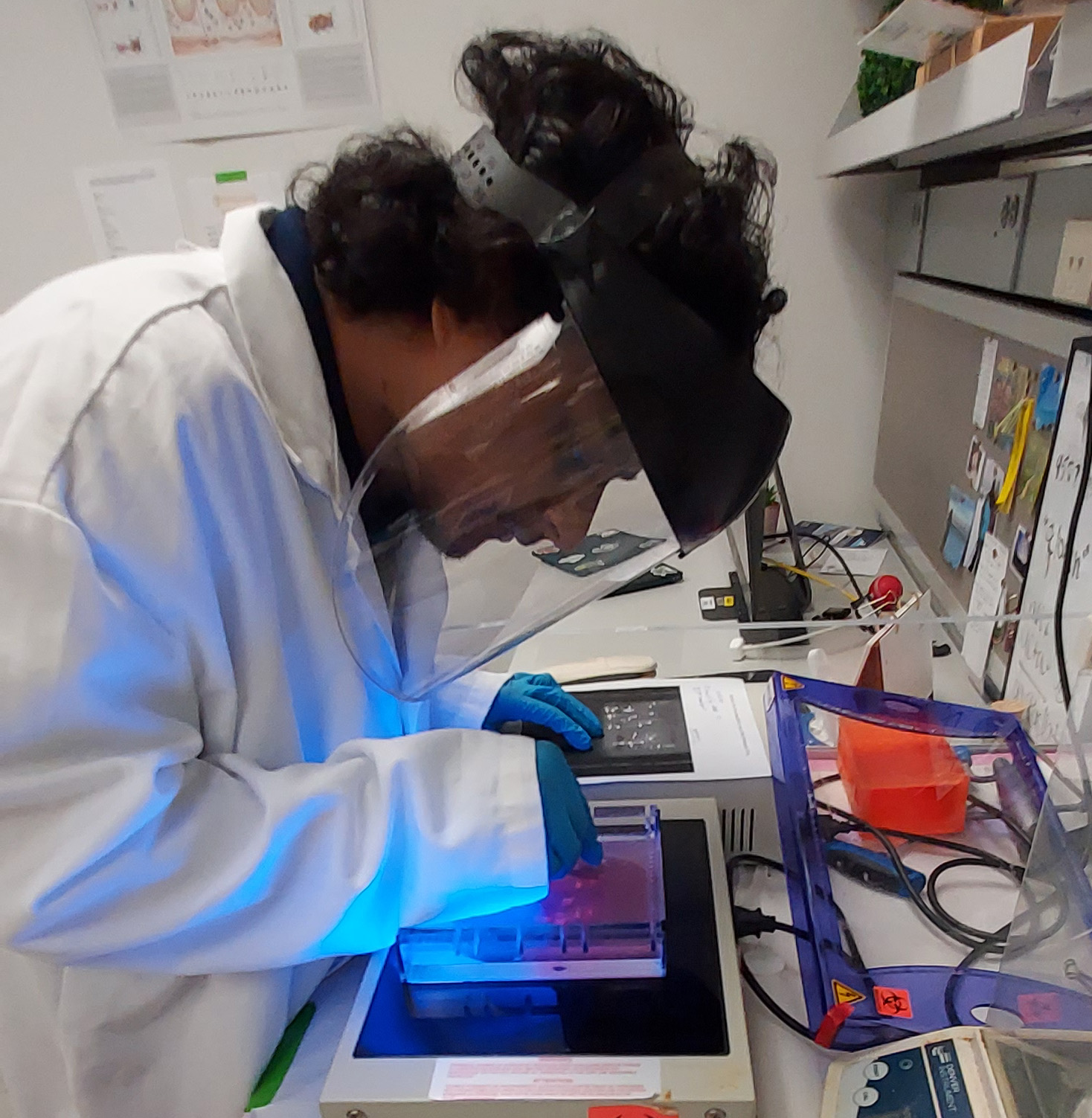
Our model systems include:
- Clinical sarcoma samples including tissue microarrays
- Sarcoma cell lines
- Genetic and xenograft sarcoma mouse models

Munir Tanas, MD
Recent News

Dr. Munir Tanas is named a Stead Family Scholar
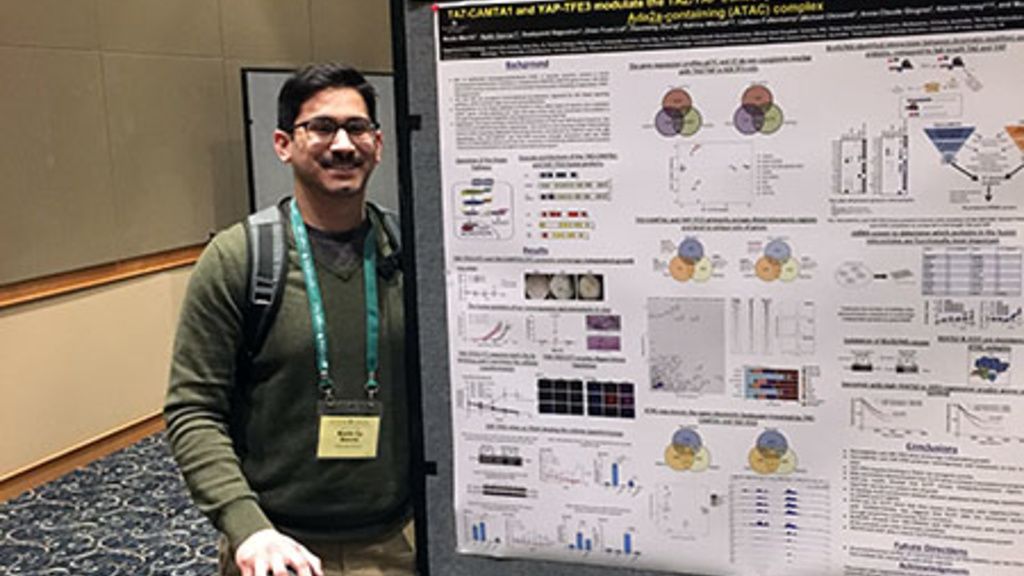
Keith Garcia presents poster at Cancer Epigenetics Meeting

